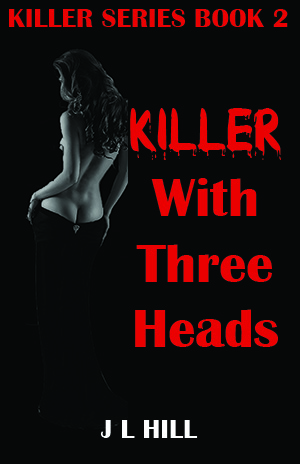What makes a good writer?

As this author looks at the profession of “scribe” throughout the ages, we learn there are some key traits that all good writers have in common.
by James L Hill
 The job of author/scribe/writer throughout the ages has been to educate and entertain. In short, it is a lofty calling to enlighten the populace. Over the years, there has been somewhat of a split between education and entertainment. In the modern ages, entertainment has become the goal, or perceived function, of an author getting paid to produce works like plays, novels, and radio/movie/TV scripts purely for the enjoyment of the audience.
The job of author/scribe/writer throughout the ages has been to educate and entertain. In short, it is a lofty calling to enlighten the populace. Over the years, there has been somewhat of a split between education and entertainment. In the modern ages, entertainment has become the goal, or perceived function, of an author getting paid to produce works like plays, novels, and radio/movie/TV scripts purely for the enjoyment of the audience.
Serious writers take on the responsibilities of the scribes of old, creating works that preserve the historical record. These are the newsmen, journalists, and biographers: the historians of today. The difference between a newsman (this includes women) and a journalist is a newsman works on a daily story while a journalist goes deeper into the background of what happened.
Books & Buzz Magazine is where writing pros spill their secrets! Subscribe now for free
While there may be some truth in these views, they are not wholly factual. Many authors work to educate their audiences by a means that is easy for them to accept. Authors often use fiction to point out social conditions that would otherwise go unnoticed by people not affected by the situation. People resist facing facts that reflect poorly on them but can learn the errors of their ways when they see it in others.
Authors can write about things that are suppressed by governments or those in power. Once a book has been published, the information is out, and the only way to quash it is to burn the book. And that fire will only shine a brighter light on what others wish to keep hidden.
William Shakespeare’s quote “In jest, there is truth” is perhaps the basis of all comedy. Whether poking fun at ourselves, or at the absurdity of others, comedians have always been the spokespersons of society. A great comedian will make you laugh until you cry. And you walk away seeing a truth that was hidden by the harshness of the facts.
Authors often use fiction to point out social conditions that would otherwise go unnoticed by people not affected by the situation.
On the flip side of writing, the same principals can be applied. Journalists (and from here on out, everyone who writes reports, either on a daily basis, longer periods, or about a single person—meaning a biographer—will be referred to and included as a journalist) are supposed to report the facts without a personal slant. As Joe Friday said, “Just the facts, ma’am.” But that doesn’t mean it has to be cold and dry in its presentation. (A side note: Joe Friday, a fictional detective, created and played by Jack Webb, from the show Dragnet, only uttered that line in one episode while taking an eyewitness report.)
Good journalists make use of dramatic writing and humor to make the story stand out. After all, what good is writing a report that no one reads? And in some cases, the words chosen can give a hint as to the writer’s feelings about the subject. It is extremely hard to keep one’s personal feelings and beliefs out of their writing. The best journalists are great at hiding them behind the words, but bad ones splay their opinions all over the page. Today, there are many people masquerading as journalists who can loosely be described as editorialists.
It is said that history is written by the victors, but you can still find the history of those who lost the war. There needs to be truth in both sides of the story, or it falls into the category of propaganda. And the journalist guilty of spreading falsehoods is labeled a liar. A journalist’s greatest asset is integrity. Being able to tell the truth, no matter how they feel about it, is a trait that must be honed into a spear and shield. It protects the journalist from reproach and allows them into places others have no access to. And they are always under attack.
Authors can use disclaimers to get around letting the facts of their stories be shaded by their opinions. They take liberties, to a certain extent, by saying the persons and places depicted are fictional and not representative of anyone living or dead. Journalists have no such protection and expose themselves to lawsuits if what they say cannot be proven or is said with the intent of causing harm to the person. In either situation, “Let the truth be your guide” is a great standard.
James L Hill, a.k.a. J L Hill, is a native New Yorker from the South Bronx, Fort Apache, of the turbulent sixties. James earned a degree in computer programming, his other love. A multi-genre author, his experiences seasoned his novels and the worlds he imagined. He started RockHill Publishing LLC to publish his own work and give others access to the literary world.